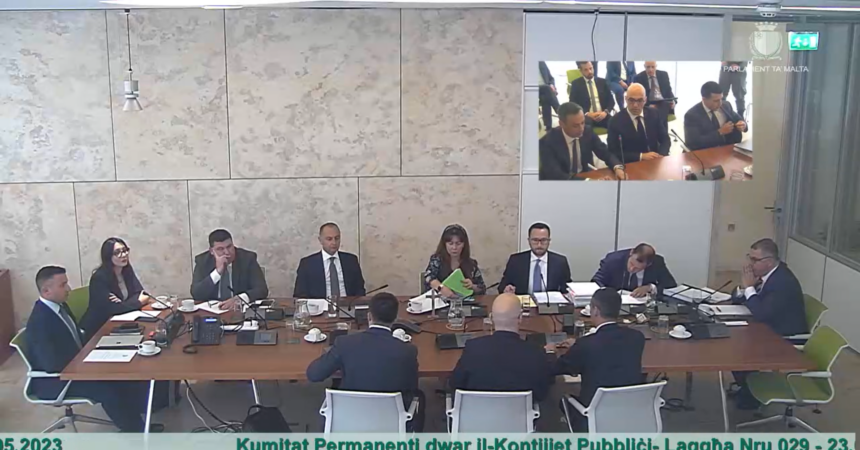Yorgen Fenech, the businessman who stands accused of masterminding the assassination of journalist Daphne Caruana Galizia, refused to testify in front of the Public Accounts Committee this afternoon in view of his pending cases in court.
Fenech’s lawyers, Gianluca Caruana Curran and Charles Mercieca cited Erskine May’s treatise on UK parliament proceedings, applicable through standing order 197 of the Maltese law which allows reference to UK practice in select circumstances.
Fenech’s defence cited paragraph 38.25 of the treatise which allows for committees to suspend testimony in an inquiry in view of linked pending criminal proceedings. They claimed that the matter under investigation, contracts awarded by Enemalta to the Electrogas Consortium, was the court’s cited alleged motive for the murder.
The committee agreed to suspend Fenech’s testimony until the four cases related to the committee’s investigation are settled in court. Once settled, Fenech’s defence agreed that he would answer questions at the committee’s request.
While Fenech could be seen whispering to his defence, he did not utter a single word to the committee, having not even yet been sworn under oath by the meeting’s conclusion.
At the end of the meeting, Opposition MP Darren Carabott, who has been chairperson of the PAC since March 2022, took a moment to comment about the proceedings, saying that “in a normal country, the issue of where taxpayer funds are channelled would not be discussed in criminal court”.
Fenech was the director of the Maltese-German-Azerbaijani Electrogas consortium, the company under investigation by the committee. Fenech’s testimony was requested by the Public Accounts Committee following former Chief of Staff Keith Schembri’s suspended hearings.
Schembri had testified at the PAC on 18 April, claiming he “could not remember” authorising the set up of an offshore company in Panama in his name, despite evidence to the contrary.
It is suspected that Schembri’s Panama company was funnelled funds by another company, 17 Black, owned by Yorgen Fenech, with the funds channelled from the Electrogas contracts awarded by Enemalta and ultimately the taxpayer’s pocket.
Documents from 2015 authorising the set-up of Tillgate Inc. show that Schembri signed off on the process, calling into question whether Schembri may have committed perjury in his PAC testimony.
Despite his memory lapse, Schembri had remembered the old line he used when caught out with the release of the Panama Papers – that the company was to be used ‘only once he left politics. Schembri authorised the setting up of the company in 2015. Labour was elected to power in 2013.
Disgraced former energy minister Konrad Mizzi has also been called in front of the committee. Mizzi has consistently used stonewalling tactics to avoid answering the committee’s questions, including those seeking answers to how Mizzi and Fenech first met.
Fenech is currently held at Corradino Correctional Facility, where he is jailed without having been granted bail. He has been under arrest since late 2019.
The Public Accounts Committee will reconvene on Tuesday 30 May at 2pm, with the committee still undecided as to who it will call to testify in its continued review of the NAO report on the irregular Electrogas contracts.













Bottom line is, the criminals who stole, defrauded, opened secret accounts in Panama and elsewhere, pocketed millions from every smelly contract they signed, made energy production dependent 100% on foreign hands at whatever price they can squeeze out of the Maltese taxpayers, are now having fun and games with the Public Accounts Committee which spent countless hours trying to get one sentence which made sense out of Schembri, Mizzi and now Fenech, with no success as, in each case the government lackeys are in a majority and when, or if, an outright outcome is unclear, then the Speaker invariably and ostensibly makes sure that his vote tips the scale in favour of the corrupt government.
They rendered the PAC useless and a sheer waste of time.